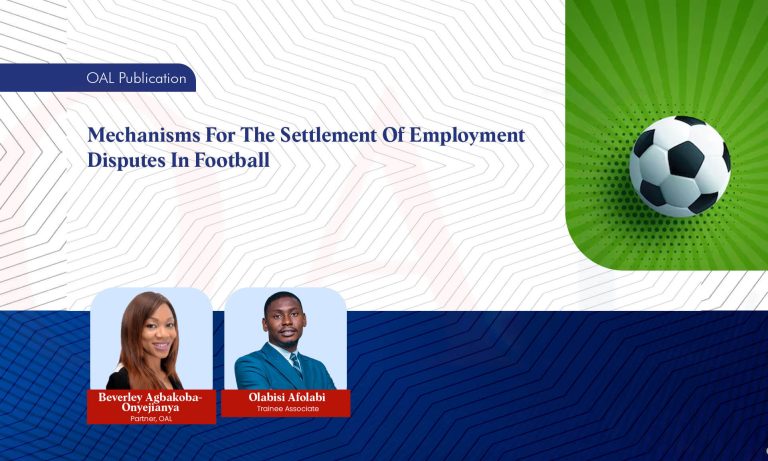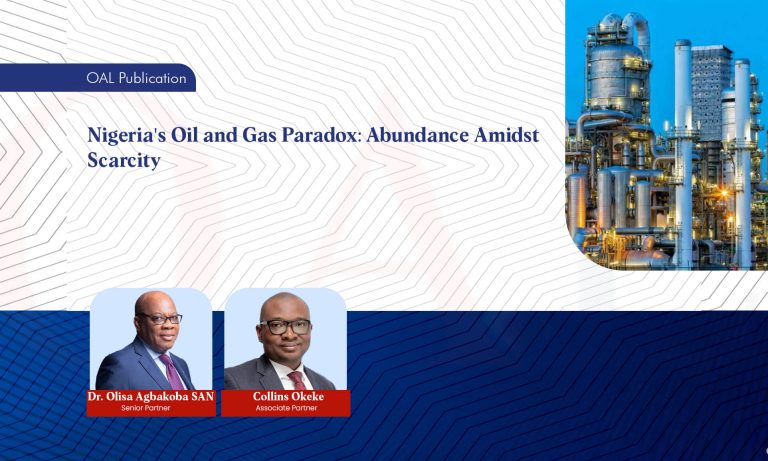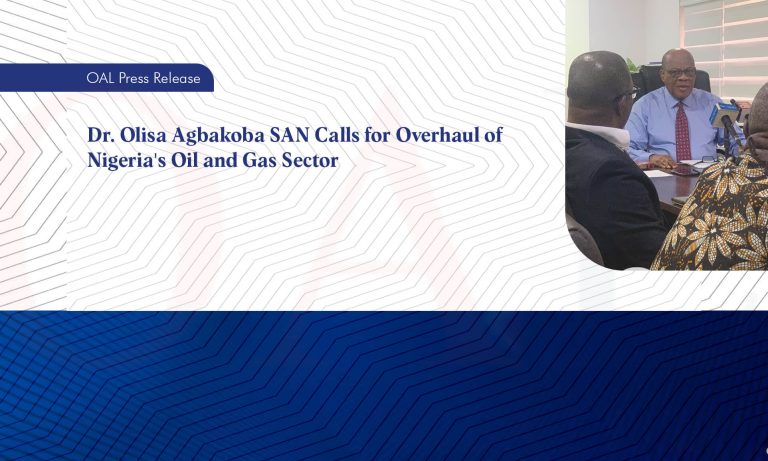

INTRODUCTION
Nigeria is facing major revenue challenges. The 2023 total budget deficit is N10.78 trillion. The Federal Government intends to finance the deficit mainly by new borrowings totaling N8.80 trillion. This is in addition to the current debt stock of N49.85 trillion as of the end of the first quarter (Q1) of 2023. Experts predict Nigeria’s debt service to revenue ratio may surpass 100 percent in 2023, which will limit the fiscal space and the government’s ability to pay for its operations and functions unless urgent measures are taken to build revenue. The solution is to generate more revenue which will potentially impact jobs. The Federal Government’s decision to remove fuel subsidies, float the naira and liberalise the foreign exchange market will bring in substantial revenue. But more sources of revenue will be required. The federal government appears mostly focused on tax revenues and a little fraction of non-tax revenue from oil and gas. This article highlights vast opportunities in non-tax revenues.
LEGAL FRAMEWORK FOR PUBLIC REVENUE
The constitutional basis for public revenue in Nigeria is section 162 of the Constitution which creates a scheme of public revenue. Of note is subsection 10 which defines the Federation’s “revenue” as follows:
“any income or return accruing to or derived by the Government of the Federation from any source and includes –
(a) any receipt, however described, arising from the operation of any law;
(b) any return, however described, arising from or in respect of any property held by the Government of the Federation;
(c) any return by way of interest on loans and dividends in respect of shares or interest held by the Government of the Federation in any company or statutory body”.
Surprisingly, this is not a very well-known provision of the Constitution, but it is so important that a great deal of attention ought to be devoted to it. Awareness of this provision is very important. The scope of section 162 is so wide that it embraces all types of public revenue which are divided into 2 parts, Tax, and non-Tax revenue. Adequate attention has not been paid to other non-tax revenue by the government in Nigeria besides those in the oil and gas sector. This has to change by creating relevant processes to build awareness. The Federal Government has set up a strategy concerning tax revenue with the establishment of a Presidential Committee on Fiscal Policy and Tax Reforms. The idea of the committee is welcome. Tax revenue is vital as a key source of sustainable revenue to enable the Federal Government to carry out economic development. But there is also non-tax revenue. What we have done here is highlight some streams of non-tax revenue that the government can focus on for increased revenue. This list is not exhaustive.
1. Enforcement of Section 162 of the Constitution
Most Ministries Departments and Agencies (MDAs) of government are not fully aware that they are required to statutorily transfer all revenues generated by them to the public purse created by section 162 (1) and styled as the Federation Account. Even though the Constitution sets out the legal basis of Public revenue, it is vital that a major law or Executive Order is immediately issued to require all MDAs to make statutory transfers of all non-tax income to the Federation Account without exceptions. Strict implementation of this process will immediately double non-tax income of the Federal Government.
2. Aggressive Assets Sale/Concession/PPP of Government Assets:
It is estimated that there are about 50,000 abandoned federal projects across the country valued at over N 10 trillion. This is in addition to Federal Government landed property across Nigeria estimated modestly at N5 trillion. The Ministry of Finance Incorporated (MOFI) is a federal government investment agency that holds N30 trillion worth of Federal Government assets. The Federal Secretariat in Ikoyi Lagos alone is worth at least N120 Billion and has been abandoned for over 40 years. Appropriate frameworks need to be developed to monetize these assets.
3. Local Content Enforcement
Local content is a policy that ensures that there is “Nigerian content” (local content) in the execution of projects. It is mostly applied in the oil and gas industry by the Nigerian Oil and Gas Industry Content Development Act. Local content policy creates indigenous Jobs and retains revenues that would have otherwise gone abroad. Local content policy in oil and gas has been successfully implemented in engineering but not in other services like legal, banking, insurance, and shipping. Local content will need to be vigorously implemented under the local content Act. This will bring huge revenue accruals and jobs. Experts estimate Nigeria loses over $1 billion yearly from non-enforcement of local content in legal services alone. Imagine the loss from banking, Insurance, and shipping.
4. Land Administration
The value of the Nigerian Housing Inventory is estimated at over $6 trillion but 80% of properties in Nigeria are dead capital. They have no revenue value. The solution is a massive reform of property titling to link property to the financial system. This will bring dead capital to life and transform it into revenue which banks can recognize as collateral to impact the economy. This will massively generate revenue and inject needed cash into the economy.
5. Financial Services
The financial services sector is performing sub-optimally, largely on account of weak institutions. In order to maximize revenue, the starting point is to strengthen key institutions. For instance, the Development Bank of Nigeria needs to be properly capitalized so it can support the economy. A Credit guarantee agency needs to be established to support viable business proposals. It is absent in Nigeria. When viable business proposals are guaranteed, the economy gets stimulated and expanded, and that gets converted to goods and services that are sold to consumers. The result of a viable financial services sector will be huge non-tax revenue accruing to the government. These institutions when revamped can inject over N10 trillion of taxable credit into the economy.
6. Maritime
This is potentially the largest economic sector outside oil and gas. A recent report by a Dutch consultancy firm, Dynanmar, shows that Nigeria loses about N20 billion daily (which annually is about N8 trillion) at the Lagos ports due to poor infrastructure. In other maritime sectors, Nigeria is estimated to be capable of generating N7 trillion annually and four million jobs over 4 years but to deliver the following needs to be done: Overhaul of ports infrastructure, Cabotage enforcement, the passage of critical maritime legislation like the Maritime Zones Bill, Ports Harbour Bill, etc. These laws when passed will generate non-tax revenue and attract massive investments in the sector.
7. Space
Space is the next big investment arena. Space infrastructure companies received a record $14.5 billion of private investment in 2021 and the numbers are growing. These companies are ushering in next-generation small satellite capabilities with enormous value to commercial and government customers, including organisations in energy, mining, manufacturing, transportation, finance, security, agriculture, and communications. For Nigeria to fully derive benefit from these opportunities in terms of investments and development including revenue and jobs, the 2006 Space policy and 2010 NASRDA Act needs to be updated. Government needs to issue an Executive order mandating MDAs to procure only satellite data generated by NASRDA.
Judgement Debts
Nigeria’s Federal Government is owed approximately 5.2 trillion in Judgement Debts by over 5,000+ debtors across ten (10) Ministries, Departments and Agencies (MDAs). These debts are in the form of debt liabilities to the Federal Inland Revenue Service (FIRS); refunds to the Government by companies who failed to deliver on projects for which payment had been effected, unpaid credit facilities granted to both corporate entities and individuals by the Bank of Industry (BOI) and Bank of Agriculture (BOA); judgment debt in favour of Government, debts Owed Pension Transitional Arrangement Directorate (PTAD) by Insurance Companies etc. To recover these debts there needs to be an inventory of all debts owed to the federal government. The Federal Government also needs to put in place an appropriate policy and legal framework to facilitate the recovery of these debts.
8. Immunity from Criminal Prosecution
This is a controversial but workable process that has succeeded in other jurisdictions. Legal protection is granted to persons with ill-gotten wealth to encourage them to bring back stolen monies on conditions. If introduced this can generate huge revenue.
9. Reorganization of Revenue Collection.
According to the Federal Inland Revenue Services, Nigeria lost over $ 178 Billion to tax evasion by multinationals in 10 years. It is therefore vital to strengthen the revenue collection processes of the government. To achieve this, there has to be a one-stop shop for revenue collection. Currently, many agencies are collecting revenues. This is not efficient.
Reform of legal framework
Some of Nigeria’s tax laws are stale and require modernization. Some date back to the 1930s. Further to this is the need to digitalize the collection of non-tax revenues. Reform of non-tax laws and digitalization will bring in new revenues.
CONCLUSION
The above-highlighted non-tax revenue opportunities are not exhaustive. Other non-tax opportunities can be identified. Looking at all these areas and without any serious study, it shows that we are almost at N100 trillion. But with concerted deep study, it is possible to even exceed the N100 trillion mark. Government should explore new sources of revenue to close the budget deficit and grow the economy. We strongly feel that a special case can be made for non-tax revenue.
Author



